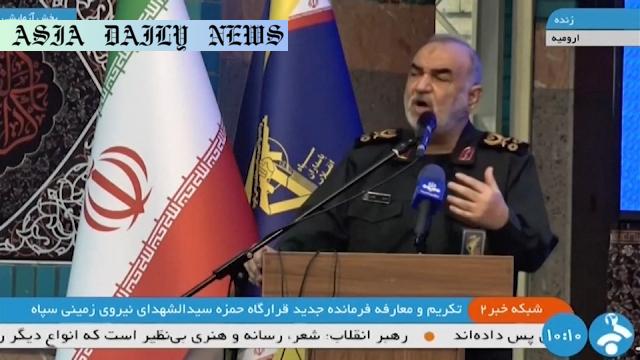Iran Foreign Policy – Tehran challenges US authority on Yemeni war, highlighting violations of international laws and UN principles.
Iran asserts that the US has no authority over its foreign policies.
The Iranian leadership condemned US military interventions in Yemen.
Iran emphasized the violation of UN laws and international sovereignty.
Iran stated it does not control operational decisions of any resistance groups.
Observers noted Iran’s effort to avoid escalating tensions with the US.

Introduction: Iran’s Rebuttal on US Policy
The recent statement from Iran’s Foreign Minister Abbas Araghchi underscores the country’s firm position on its foreign policy decisions. Responding to President Donald Trump’s demands that Iran cease supporting the Houthis in Yemen, Araghchi declared that the US government lacks the authority to impose its directives on Iran. His remarks reflect the broader sentiment in Tehran regarding sovereignty, international law, and the ongoing conflict in Yemen.
Condemnation of US Actions in Yemen
Iran strongly condemned the US military’s airstrikes in Yemen, which have reportedly resulted in the deaths and injuries of numerous civilians, including women and children. Esmail Baqaei, the spokesperson for Iran’s Ministry of Foreign Affairs, described these actions as grave violations of the fundamental principles outlined in the United Nations Charter. He further outlined how the US’s actions undermine basic international laws, including those concerning the prohibition of force and respect for the sovereignty of nations. By highlighting these incidents, Iran emphasizes the humanitarian toll and legal repercussions of the US’s interventionist policies.
The Role of Iran in Resistance Movements
In his address, Major General Hossein Salami, chief commander of Iran’s Islamic Revolutionary Guard Corps, stated that operational decisions among resistance groups, such as the Houthis in Yemen, are independently managed. According to Salami, Iran has no role in influencing these groups’ strategies or agendas. This claim seeks to distance Iran from accusations that it directly controls or escalates regional conflicts, instead framing its role as one of ideological and logistical support rather than operational leadership.
Complex Dynamics and Observers’ Analyses
Observers have noted that despite Iran’s vocal criticism of the United States, the country’s leadership seems cautious about escalating tensions further. By strongly denouncing the US airstrikes in Yemen while clarifying its role in resistance movements, Tehran appears to be engaging in a balancing act. The goal of this approach seems to be to assert its stance on sovereignty and humanitarian issues while avoiding a deeper conflict with the US. The complex geopolitical situation in Yemen and the broader Middle East continues to place challenges on the formulation and maintenance of such a stance.
The Broader Implications for International Relations
The ongoing tension between Iran and the United States over issues like Yemen is emblematic of larger, ongoing geopolitical struggles. The statements from Iranian officials highlight the divide in how both nations view and engage with international laws and principles. Where Iran accuses the US of violating sovereignty and humanitarian norms, the US often defends its actions as part of broader efforts to promote regional security or counter perceived aggressors.
This push-and-pull dynamic mirrors the broader struggle between global powers and emerging regional players. For Iran, standing firm on its foreign policy decisions is not only a matter of national sovereignty but also an assertion of its role as a significant regional power. For the US, on the other hand, influencing outcomes in countries like Yemen often ties back to its interests in maintaining geopolitical dominance.



Commentary
Unpacking Iran’s Firm Stance on Sovereignty
Iran’s recent response to US interventions once again highlights the evolving dynamics of global geopolitics. The strong statement by Iranian Foreign Minister Abbas Araghchi reflects a determination to uphold Iran’s autonomy in international affairs, despite significant pressure from the United States. Declaring that the US has no authority over Tehran’s decisions is not only a defense of sovereignty but also a strategic move to appeal to international norms that prioritize non-aggression and respect for national boundaries.
Humanitarian Concerns as a Focus of Criticism
Iran’s condemnation of US airstrikes in Yemen underlines its broader criticism of American foreign policy in the region. Whether in Iraq, Afghanistan, or Yemen, US military interventions have often been accompanied by accusations of civilian casualties and violations of international law. By bringing attention to the humanitarian toll in Yemen, Iran positions itself as an advocate for human rights while simultaneously deflecting from critiques about its own involvement in regional conflicts.
Finding Balance Amid Escalating Tensions
Interestingly, while Iran has taken a firm stance against the United States’ actions, it appears to be navigating carefully to avoid further escalating tensions. The statements from Iranian officials are measured, emphasizing sovereignty and the independence of groups like the Houthis without directly issuing threats or provocations. This strategy may indicate a desire to strengthen its position on the global stage without alienating potential allies or worsening strained relations with the US.
A Changing World Order
Beyond the immediate context of Yemen and US-Iran relations, this episode reflects the shifting dynamics of international power structures. As nations like Iran assert greater influence and challenge traditional power players like the United States, the global order continues to evolve. How these dynamics play out will have far-reaching implications, not just for the Middle East but for global diplomacy and international law.